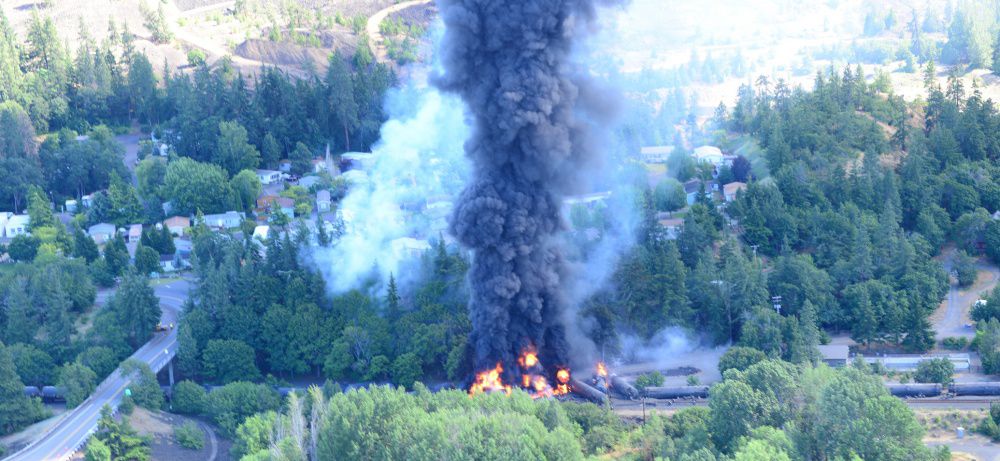Tesoro and Savage Abandon Plans for Vancouver Oil Terminal
Vancouver Energy announced Monday that it has given up its lease for a proposed rail-to-ship oil transfer terminal at the Port of Vancouver, Washington. The port commission had already voted to let the lease expire on March 31 unless the firm secured all necessary permits.
The Tesoro/Savage terminal project faced public opposition from the start, not over the facility itself so much as the rail cars it would receive. About one dozen unit trains of Bakken crude oil currently pass through the Columbia River National Scenic Area each week, and the terminal would have accepted up to 28 more. Opponents contended that these additional shipments would pose a hazard to communities and to the environment along the route. The terminal's prospects dimmed further when an oil train derailed and caught fire at Mosier, Oregon in 2016, raising public fears of another Lac-Mégantic disaster and souring local opinion on the concept of oil-by-rail.

The derailment at Mosier, Oregon, June 3, 2016 (USCG / PO1 Levi Reed)
In December, after a multi-year public review process, Washington's Energy Facility Site Evaluation Council unanimously voted against the proposed terminal, citing risks to "life, safety, property and the environment." On January 29, Governor Jay Inslee accepted their advisory vote and denied Vancouver Energy's application. “There were thousands and thousands of citizens who lent their voices and their insight into this process,” Inslee said in a statement. “This was democracy in action and I believe it was consistent with our state’s laws and what we expect for our communities.”

that matters most
Get the latest maritime news delivered to your inbox daily.
Vancouver Energy disagreed. "Rejecting essential infrastructure on the basis of risks the evaluation council found to be extremely unlikely, and which are inherent to transportation occurring across the country today, is no way to govern," the firm wrote. "This decision sends a clear anti-development message from state leadership."
For the Port of Vancouver, the lease termination opens up land that has been locked up for four years in a politically-charged permitting process. “From the port’s perspective, [ending the lease early] gives us the ability to market the property that’s currently under the lease and provides us an earlier opportunity to look at other potential tenants for that site,” said port CEO Julianna Marler on Tuesday. Port officials are already in talks with other businesses.
